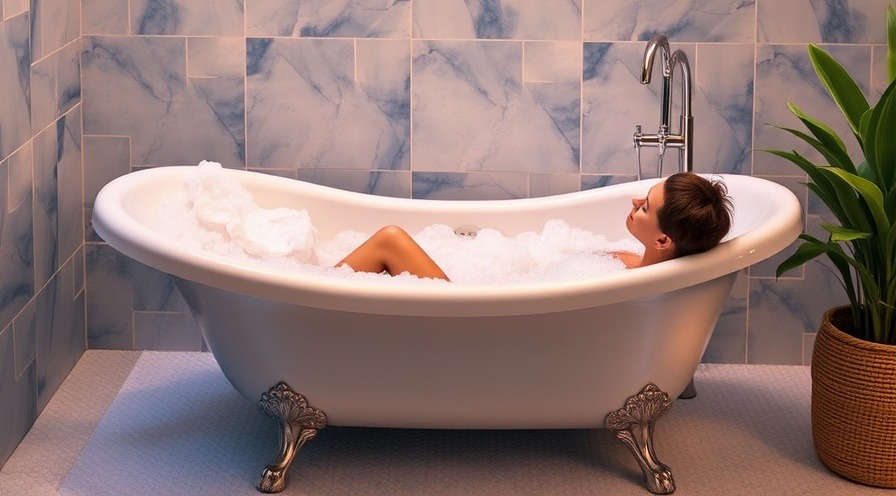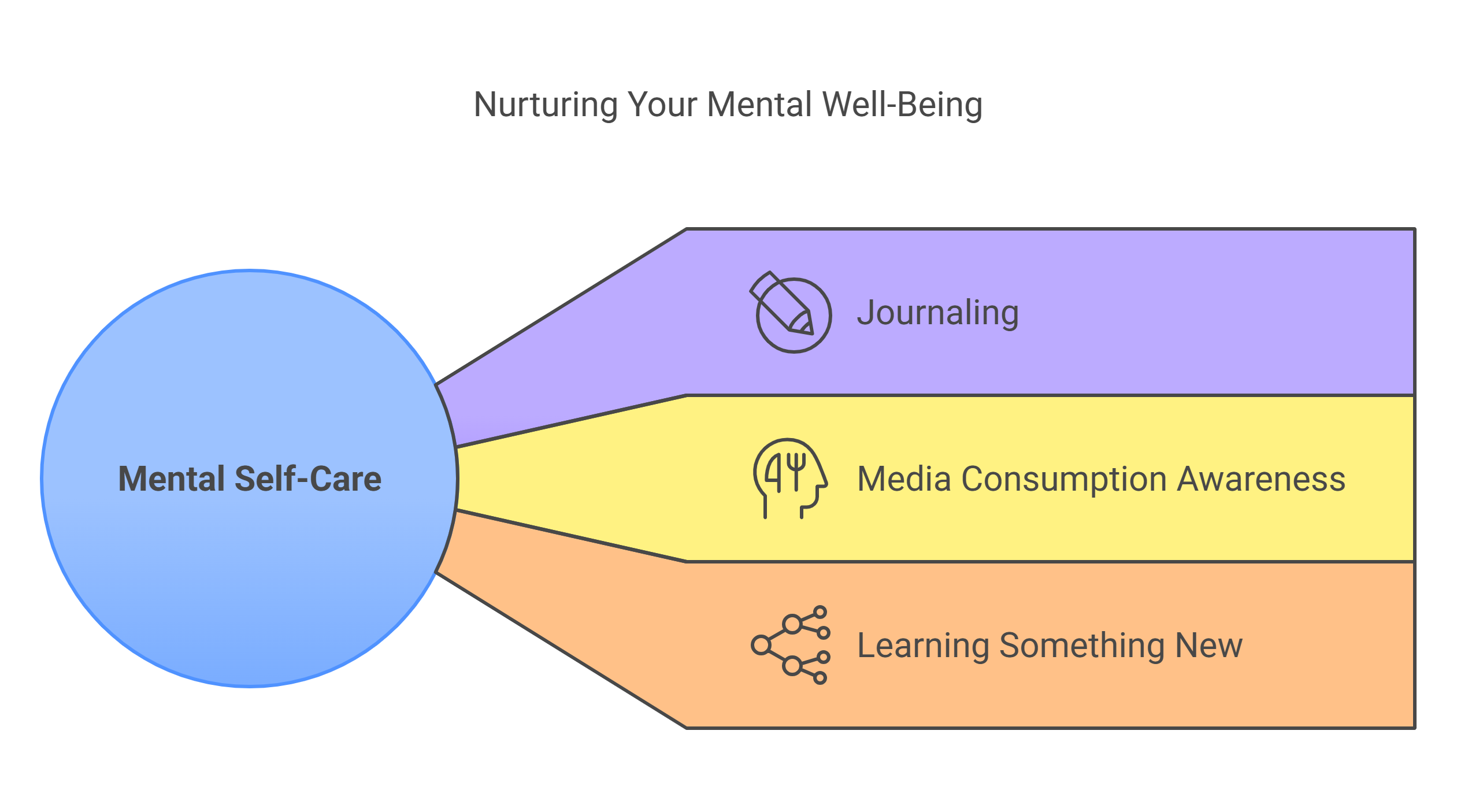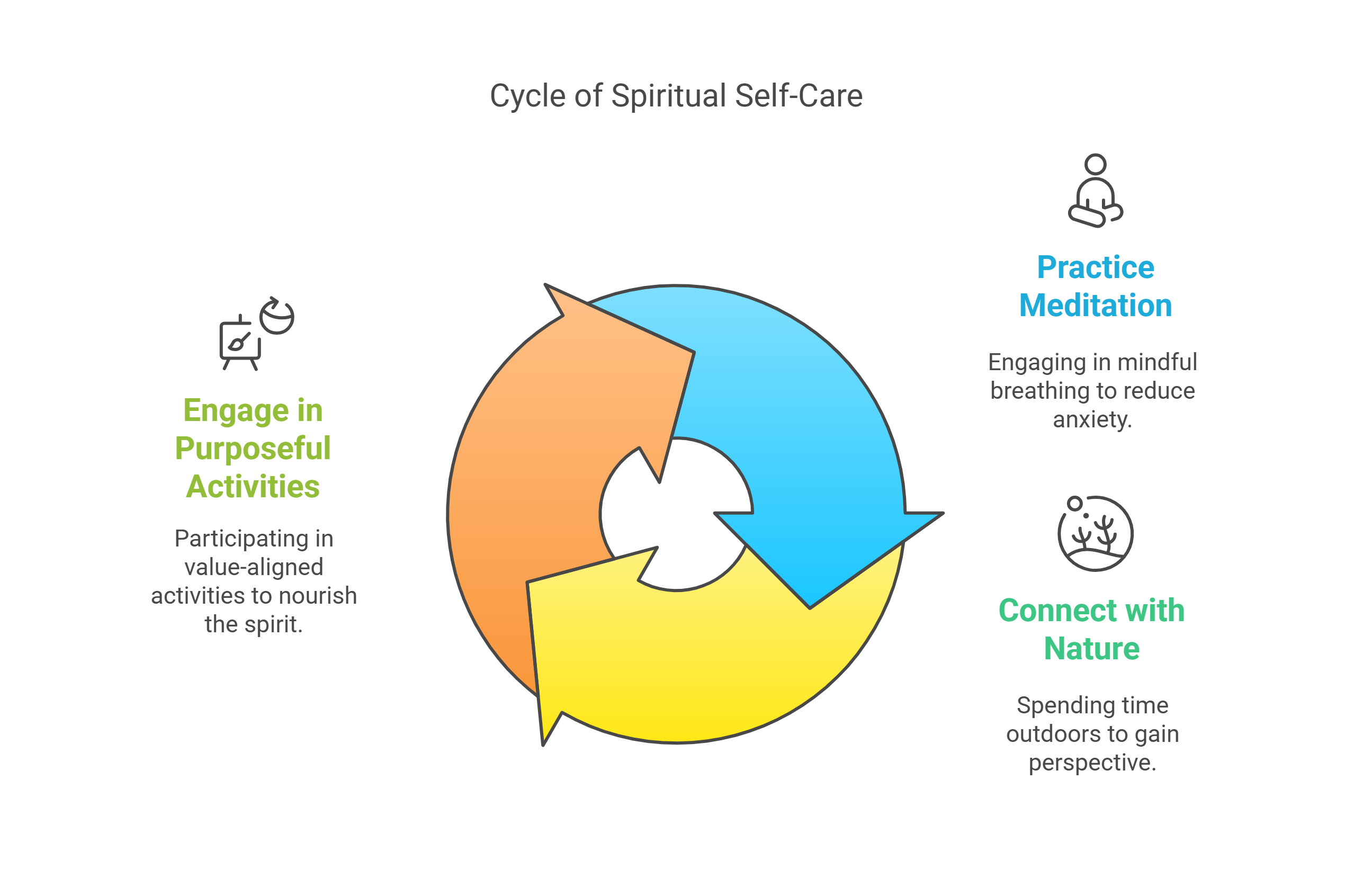
Beyond Bubble Baths: Why True Self-Care Nurtures Your Whole Being
"Self-care" has become quite the buzzword. Scroll through social media and you'll see countless posts featuring luxurious bath bombs, expensive face masks, and indulgent spa days—all tagged as #selfcare. While these moments of pampering certainly have their place, true self-care goes far deeper than occasional indulgences. It's time we reframe our understanding of what it means to truly care for ourselves in a holistic, sustainable way.
What Holistic Self-Care Really Means
Holistic self-care acknowledges that we are complex beings with interconnected physical, mental, emotional, and spiritual dimensions. When we nurture all aspects of ourselves, we create a foundation for genuine well-being that can weather life's inevitable storms.
"Self-care is not just about treating yourself occasionally,"
says Dr. Pooja Lakshmin, psychiatrist and author of Real Self-Care. "It's about making choices aligned with your values and taking responsibility for your well-being on a consistent basis. This involves setting boundaries, making difficult decisions, and sometimes saying no to things that don't serve you."
Rather than viewing self-care as an occasional escape from a stressful life, we can see it as the ongoing practices that help us build resilience and fulfillment from within.
Mental Self-Care: Tending to Your Inner Landscape
Your mind deserves intentional care. Consider these practices that nurture mental well-being:
Journaling
Taking just 10 minutes each day to write freely can help process emotions, gain clarity on problems, and identify patterns in your thinking. Try prompts like "What's taking up mental space right now?" or "What went well today and why?"
Media Consumption Awareness
Notice what information you're feeding your mind. Are news alerts constantly disrupting your peace? Are certain social accounts leaving you feeling inadequate? Being selective about your media diet is powerful self-care.
Learning Something New
Challenging your brain with new skills or knowledge—whether it's a language, instrument, or hobby—builds cognitive reserves and brings joy through mastery and growth.

Emotional Self-Care: Honoring Your Feelings
Emotional health requires acknowledging feelings rather than suppressing them:
Emotional Check-Ins
Take moments throughout your day to ask: "What am I feeling right now?" Name the emotion without judgment, and consider what it might be telling you.
Healthy Emotional Processing
Finding appropriate outlets for emotional expression—whether talking with a trusted friend, working with a therapist, or expressing yourself creatively—prevents emotional buildup.
Boundary Setting
Perhaps the most powerful form of emotional self-care is learning to establish and maintain healthy boundaries in relationships. This protects your energy and honors your needs.
Physical Self-Care: Beyond Appearances
Physical self-care nurtures your body as the vessel that carries you through life:
Mindful Movement
Exercise doesn't have to mean grueling workouts. Finding movement that brings you joy—whether walking, dancing, yoga, or gardening—makes caring for your body sustainable.
Nutrition That Nourishes
According to Dr. Robert Lustig, endocrinologist and professor at the University of California, San Francisco,
"Processed food, especially those high in added sugars, can significantly impact your health beyond just weight. These foods can disrupt metabolic processes, affect mood regulation, and potentially contribute to chronic inflammation."
This isn't about restrictive diets but choosing foods that energize rather than deplete you. Being mindful about sugar intake in particular can help stabilize mood and energy levels.
Rest and Recovery
Quality sleep and intentional downtime aren't luxuries—they're necessities. Creating a consistent sleep routine and allowing yourself true breaks creates the foundation for everything else.
Spiritual Self-Care: Connecting to Something Larger
Regardless of religious affiliation, spiritual self-care connects us to meaning and purpose:
Meditation and Mindfulness
Even five minutes of mindful breathing can bring you back to the present moment, reducing anxiety about the past or future.
Nature Connection
Spending time outdoors, observing the natural world, can foster perspective and awe that transcends daily worries.
Purpose Practices
Regularly engaging in activities aligned with your values and sense of purpose—whether through community service, creative expression, or meaningful work—nourishes your spirit.

Creating Your Holistic Self-Care Practice
The beauty of self-care is that it's highly individual. What fills your cup might drain someone else's. Here are steps to develop your personalized approach:
Reflect on all four dimensions—mental, emotional, physical, and spiritual—and identify which areas need more attention right now.
Start small with just one new practice in each dimension.
Schedule these practices as non-negotiable appointments with yourself.
Reassess regularly, noticing what brings genuine nourishment versus what just feels like another obligation.
Find accountability through sharing goals with friends or joining communities with similar values.
Remember that holistic self-care isn't about achieving perfection in every area. It's about bringing awareness and intention to how you treat yourself across all dimensions of your being. The small, consistent choices you make each day ultimately create the quality of your life experience.
So while there's nothing wrong with enjoying that occasional bubble bath or face mask, perhaps the most powerful act of self-care is committing to nurture your whole self—mind, heart, body, and spirit—through daily practices that build a life you don't regularly need to escape from.
What one small step toward holistic self-care could you take today?
 Add Row
Add Row  Add
Add 




Write A Comment